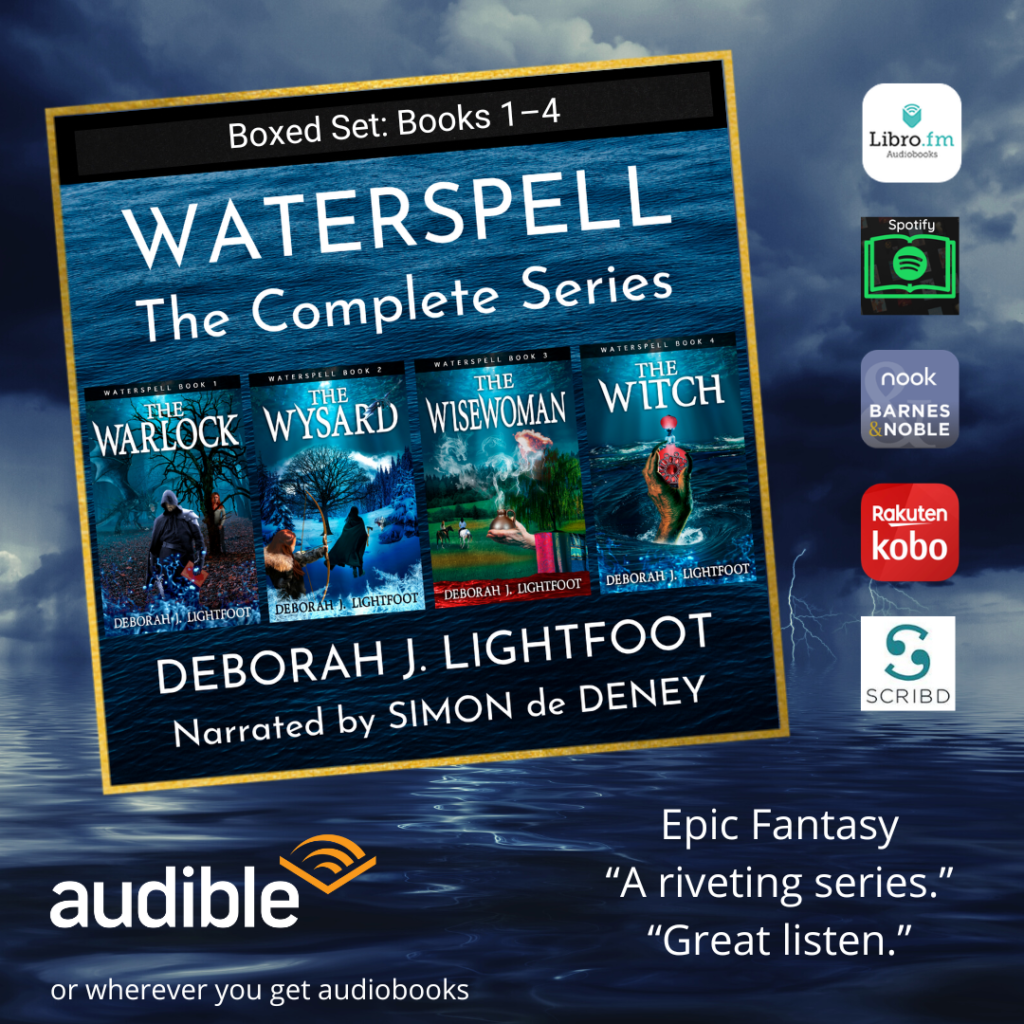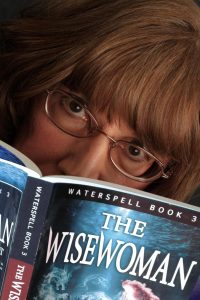An indie author sent me her book in hopes that I’d review it. Unfortunately, I couldn’t get past the first two pages. The prose was marred by a series of dangling participles. To wit: “Turning the faucet, hot water filled the tub.” Huh? I’m not convinced that hot water has the necessary dexterity to perform such a maneuver. And: “Lighting the candles, the fragrance reminded me of perfume.” It’s an even greater stretch to picture a fragrance striking a match.

My 99-cent ebook on Self-Editing offers advice for identifying and correcting common errors involving “-ing” words (my nickname for participles). Here’s an excerpt, re-posted from my old blog:
(This series begins with Part 1.)
IV. -ing Words
After using your computer to search for “ly” adverbs, then search for “-ing” words. This can be tedious — you’ll find “thing,” “ring,” “string” and other perfectly innocent words when what you’re hunting for are verb-like words that end in -ing. These “ing” words often cause trouble. You may find you’re using them to “back into” too many sentences:
Flipping her hair off her shoulder, Alice turned to go. Reaching the door, she paused. Turning to face him again, she started to speak. Thinking better of it, she stormed out.
A long string of sentences like these will drive a reader nuts. Rewrite to eliminate at least three-fourths of these sorts of “ing” opening phrases.
Also check for “danglers” that don’t quite say what you meant:
Being late to work, the boss fired her. [The boss wasn’t late. She was.]
Lying in the hammock, it struck her that Bob was OK. [A hammock with a temper?]
While walking his dog, the fire alarm sounded. [Talented fire alarm!]
Every time you find yourself using an “-ing” word to back into a sentence, consider rewriting it in solid subject-verb-object form. The result is usually clearer and crisper:
Running to the stable, he mounted his horse. He mounted while he was running? While the horse was running? It’s muddy. Simpler to say: He ran to the stable and mounted his horse.
Reaching for his gun, he fired several shots into the air. Try switching those two phrases and you’ll immediately see the problem: Firing several shots into the air, he reached for his gun. Just keep it simple and direct: He drew his gun and fired.
Crossing the stream, she tripped. Problem 1: It’s unclear. Did she trip while crossing the stream, or after crossing? Problem 2: It’s telling, not showing. This is a weak sentence that describes action that would be better shown: She waded into the freezing water. The current caught her midstream, slamming her off her feet.
Use the Find feature to locate your -ing words, and study each carefully. Recast any sentences you’re backing into, any sentences that are unclear. I don’t mean that you should eliminate all -ing words. But you should consider the value of each one, and choose carefully which to keep, which to rewrite.
Here’s a brief “-ing” opening that works:
Turning, he lifted the blackjack from the low shelf and slammed it on the counter.
With the emphasis moved to the “-ing” words, however, the sentence becomes weak and far less effective:
He turned his head, lifting the blackjack from the low shelf and slamming it on the counter.
[For more about Dangling Participles, see “Quick and Dirty Tips” from Grammar Girl.]
 Remember that the Monster 99-Cent Book Sale continues through November 1. Each of the three books of the Waterspell trilogy is on sale for a mere 99 cents. Afterward, the price will return to $2.99 per book, so get ’em while they’re going so cheap!
Remember that the Monster 99-Cent Book Sale continues through November 1. Each of the three books of the Waterspell trilogy is on sale for a mere 99 cents. Afterward, the price will return to $2.99 per book, so get ’em while they’re going so cheap!
















